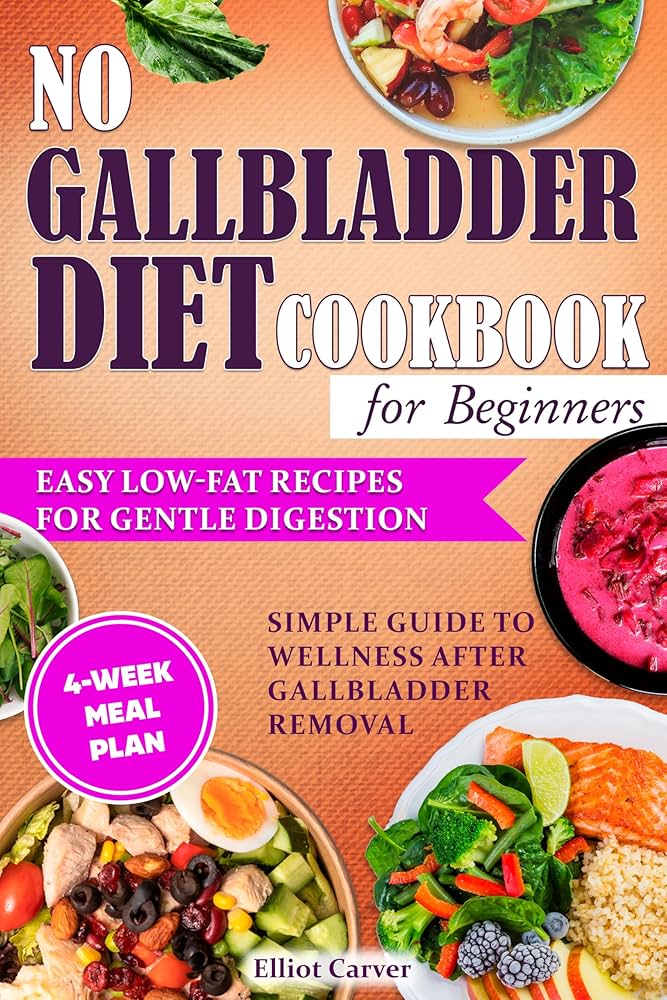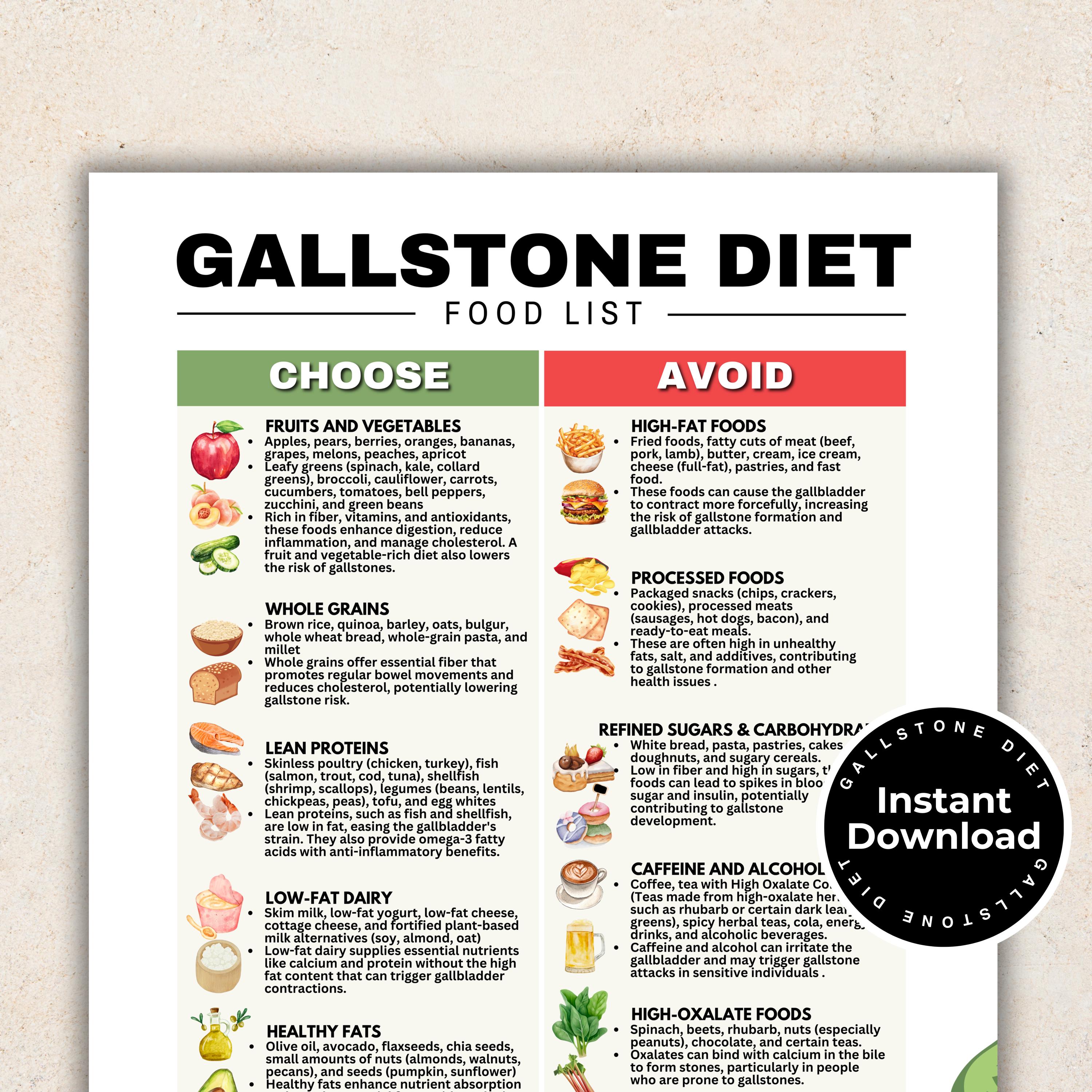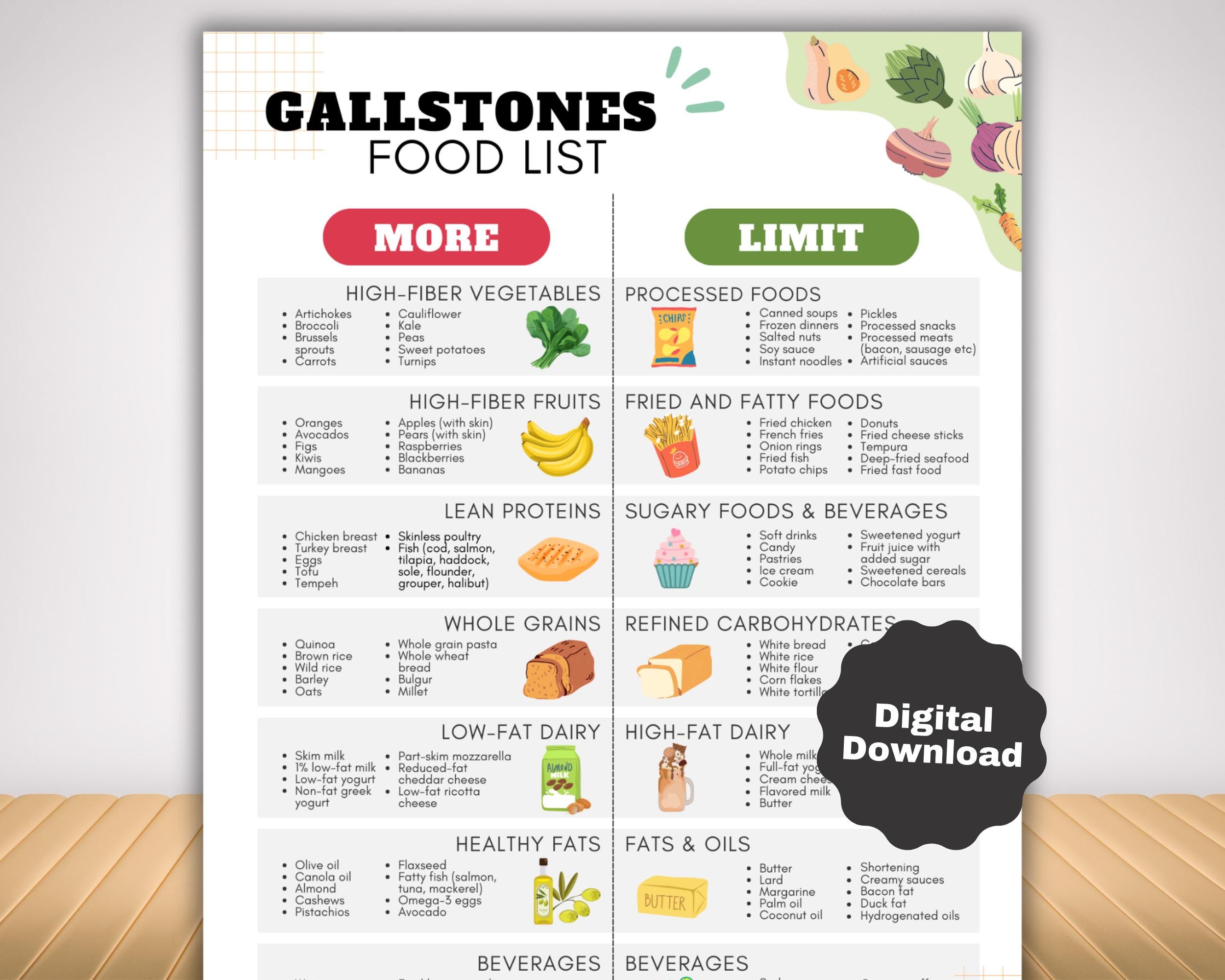Imagine feeling light, energetic, and free from the discomfort that gallbladder issues can bring. If you’ve ever experienced the nagging pain of gallstones or gallbladder disease, you know how disruptive it can be to your daily life.
But there’s good news—adopting a Low Fat Diet for Gallbladder could be your key to relief and better health. By choosing the right foods, you can help your gallbladder function more efficiently and reduce the risk of painful flare-ups. This isn’t just about avoiding certain foods; it’s about understanding how your diet directly impacts your gallbladder health.
You deserve to enjoy meals without the fear of pain lurking around the corner, and this article will guide you on how to do just that. Dive in to discover simple, actionable steps that can transform your diet and support your gallbladder. You’ll learn which foods to embrace and which ones to avoid, helping you create a meal plan that not only satisfies your taste buds but also nurtures your body. Ready to take control and feel your best? Let’s explore the power of a low-fat diet for your gallbladder.

Credit: www.amazon.com
Gallbladder And Its Functions
The gallbladder is a small organ beneath the liver. It stores bile produced by the liver. Bile aids in digesting fats. A healthy gallbladder helps maintain smooth digestion.
Understanding the gallbladder’s role is crucial. Knowing its functions can help manage diet choices effectively. Especially important for those with gallbladder concerns.
Role In Digestion
Bile plays a key role in breaking down fats. The gallbladder releases bile into the small intestine. This process happens during meals. Bile helps fats become absorbable. Without the gallbladder’s function, fat digestion becomes challenging.
Effective digestion relies heavily on bile. It emulsifies fats. This allows enzymes to break them down efficiently. The gallbladder ensures bile is available when needed.
Common Gallbladder Issues
Gallbladder problems are common. Gallstones are a frequent issue. They form when bile hardens. These stones can block bile flow. Blockage leads to pain and discomfort.
Other issues include inflammation. Known as cholecystitis, it causes swelling. Inflammation often results from gallstones. Symptoms include severe pain and fever.
A low-fat diet can help. It reduces stress on the gallbladder. It minimizes the risk of gallstones. Eating wisely supports gallbladder health.
Importance Of A Low Fat Diet
Understanding the importance of a low fat diet for gallbladder health is crucial. The gallbladder plays a vital role in digestion. It stores bile, which helps break down fats. A high-fat diet can strain this organ, leading to complications. Reducing fat intake supports gallbladder function and promotes overall well-being.
Benefits For Gallbladder Health
A low fat diet reduces the risk of gallstones. Gallstones form when cholesterol levels in bile are too high. By consuming less fat, bile can function more effectively. This diet also minimizes inflammation. A calm gallbladder is less likely to cause pain. These benefits contribute to a healthier digestive system.
Impact On Digestion
Low fat foods are easier to digest. This reduces the workload on the gallbladder. With less bile needed, digestion becomes smoother. This can decrease discomfort after meals. Bloating and indigestion may lessen. A low fat diet supports overall digestive health. It ensures nutrients are absorbed efficiently.
Key Components Of A Low Fat Diet
Adopting a low-fat diet can benefit your gallbladder health. It helps prevent gallstones and supports digestion. Understanding key components of this diet ensures a balanced approach. Choosing the right foods is essential. Avoiding certain foods is equally important.
Foods To Include
Opt for lean proteins like chicken or turkey. Fish is a great choice too. Incorporate lots of fresh vegetables. They are low in fat and high in nutrients. Whole grains like brown rice and quinoa are beneficial. They provide fiber that aids digestion. Low-fat dairy products can be included in moderation. These options help maintain a healthy diet.
Foods To Avoid
Limit intake of high-fat meats. Red meat and processed meats are best avoided. Avoid fried foods as they increase fat intake. Steer clear of full-fat dairy products. They can stress the gallbladder. Processed snacks often contain hidden fats. Choose healthier alternatives instead. Avoid sugary treats and beverages. They don’t support gallbladder health.
Meal Planning Tips
Meal planning for a low-fat diet is essential for gallbladder health. Thoughtful planning can ease digestion and reduce gallbladder stress. By choosing the right foods, you can create meals that support your body’s needs. Below are some tips to help you plan effectively.
Creating Balanced Meals
Balance is key to maintaining a healthy diet. Include lean proteins like chicken or fish. These help keep meals satisfying without adding excess fat. Add whole grains such as brown rice or quinoa. They provide fiber and nutrients. Don’t forget fruits and vegetables. They should fill half your plate. They are rich in vitamins and low in fat. Use herbs and spices for flavor. Avoid butter or creamy sauces. This ensures meals remain low-fat.
Portion Control Strategies
Portion control is vital for managing fat intake. Start by using smaller plates. This helps control serving sizes. Measure food with cups and spoons. Avoid guessing portion sizes. Serve protein the size of a deck of cards. This keeps meat servings reasonable. Fill half your plate with vegetables. They are low in calories and high in nutrients. Pay attention to hunger cues. Eat slowly and stop when satisfied. This prevents overeating.
Sample Low Fat Diet Plan
Following a low-fat diet can ease gallbladder discomfort. This plan supports gallbladder health by reducing fat intake. It focuses on simple, nutritious meals. Here’s a sample plan to guide you:
Breakfast Ideas
Start your day with a nourishing breakfast. Try oatmeal topped with fresh berries. A smoothie with banana, spinach, and almond milk is refreshing. Whole-grain toast with a thin layer of peanut butter works too.
Lunch And Dinner Options
For lunch, a salad with mixed greens, grilled chicken, and a low-fat dressing is ideal. A vegetable soup with whole-grain bread is filling. For dinner, baked fish with steamed vegetables is a good choice. Quinoa with roasted vegetables also satisfies.
Snack Suggestions
Snack smartly with apple slices and a small amount of almond butter. Carrot sticks with hummus are crunchy and tasty. A handful of almonds can curb hunger. Yogurt with a sprinkle of granola offers a creamy treat.

Credit: www.etsy.com
Managing Gallbladder Symptoms
A low-fat diet helps manage gallbladder symptoms effectively. Focus on lean proteins, fresh fruits, and vegetables to reduce discomfort. Avoid fatty foods to promote better gallbladder health and minimize painful episodes.
Managing gallbladder symptoms requires thoughtful dietary choices. Low-fat diets can ease symptoms and improve health. Eating the right foods supports gallbladder function. Focus on reducing fats while maintaining nutrients. Learn how to manage symptoms effectively with simple lifestyle changes.
Identifying Trigger Foods
Certain foods can trigger gallbladder issues. Fried and greasy foods often cause discomfort. High-fat foods may lead to gallbladder attacks. Dairy products can be problematic for some. Identifying trigger foods helps in planning meals. Keep a food diary to track reactions. Notice patterns and avoid troublesome foods. Opt for lean proteins like chicken and fish. Choose whole grains over refined ones.
Lifestyle Adjustments
Lifestyle changes play a role in managing symptoms. Regular exercise aids digestion and overall health. Stay hydrated to support gallbladder function. Limit alcohol intake to reduce strain. Eat smaller, frequent meals for better digestion. Stress management techniques can prevent flare-ups. Yoga and meditation calm the mind and body. Adequate sleep ensures proper recovery and health. Embrace these changes for a healthier lifestyle.
Consulting With Healthcare Professionals
Managing a low-fat diet for gallbladder health can be challenging. It’s essential to get guidance from healthcare professionals. They provide valuable insights to ensure your diet is effective and safe.
When To Seek Medical Advice
Seek medical advice if you experience gallbladder pain. Persistent discomfort might signal complications. A doctor can assess symptoms and suggest appropriate actions. It’s wise to consult before starting a new diet plan.
Working With A Dietitian
A dietitian can tailor a low-fat diet to your needs. They can identify foods that support gallbladder health. Collaborating ensures you get balanced nutrition. Dietitians help monitor progress and adjust plans as needed.

Credit: www.etsy.com
Common Myths And Misconceptions
Many people believe that low-fat diets are essential for gallbladder health. This idea stems from common myths and misconceptions. Some myths confuse people about what to eat. Others create fear of healthy fats. To make informed choices, it’s important to separate fact from fiction.
Debunking Diet Myths
One myth is that all fats harm the gallbladder. This is not true. Healthy fats support overall health. They are not a direct threat to the gallbladder. Another myth suggests that low-fat diets prevent gallstones. Gallstones form due to different reasons. A balanced diet reduces the risk more effectively.
Some believe that avoiding fat will speed up weight loss. This is misleading. Fat is a vital nutrient. It helps the body absorb vitamins. Cutting all fats can lead to deficiencies. It is important to focus on quality rather than quantity.
Understanding Fats
Not all fats are equal. There are good fats and bad fats. Good fats include omega-3 and monounsaturated fats. These fats support heart health. They also aid in reducing inflammation. Bad fats, like trans fats, should be avoided. They can lead to health issues.
Incorporating healthy fats is beneficial. Avocados, nuts, and olive oil are excellent choices. They provide essential nutrients. Choosing whole foods over processed options is wise. It ensures a balanced intake of healthy fats.
Frequently Asked Questions
What Is A Low Fat Diet For Gallbladder?
A low fat diet for gallbladder focuses on reducing fat intake. It helps prevent gallstones and supports overall gallbladder health. Include lean proteins, whole grains, fruits, and vegetables. Avoid fried foods, high-fat dairy products, and processed snacks. This diet aids in maintaining a healthy gallbladder function.
How Does Low Fat Diet Help Gallbladder?
A low fat diet reduces the workload on the gallbladder. It minimizes bile production, which can prevent gallstones. By consuming less fat, gallbladder contractions decrease, reducing pain and discomfort. This diet promotes easier digestion and supports the gallbladder’s natural function, maintaining its health.
Which Foods Are Best For Gallbladder Health?
Foods best for gallbladder health include fruits, vegetables, and whole grains. Lean proteins like chicken and fish are beneficial. Opt for low-fat dairy products and healthy fats such as olive oil. Avoid high-fat and fried foods, which can trigger gallbladder issues.
This selection aids in maintaining gallbladder health.
Can Low Fat Diet Prevent Gallstones?
Yes, a low fat diet can help prevent gallstones. Reducing fat intake lowers cholesterol in bile, decreasing gallstone formation risk. It ensures bile flows smoothly, preventing blockages. By maintaining a balanced diet with minimal fat, you can reduce the likelihood of developing painful gallstones.
Conclusion
Choosing a low-fat diet can support your gallbladder health. This diet helps reduce discomfort and potential complications. Focus on whole grains, lean meats, and fresh vegetables. Avoid fatty, fried, and processed foods. Drink plenty of water to aid digestion. Always consult a healthcare provider for personalized advice.
They can guide you on the best dietary choices. Remember, a balanced diet benefits overall health. Small changes can make a big difference. Stay consistent and listen to your body. Prioritize your well-being and enjoy a healthier lifestyle.

